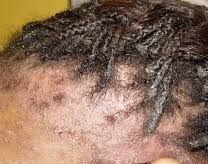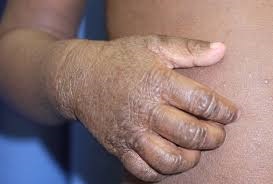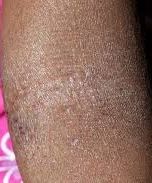
Effective Eczema Management Tips for Relief
Understanding Eczema Management Tips: Symptoms, Triggers, and Management

Living with eczema can be challenging, but understanding the condition is the first step toward effective management. With the right strategies, support, and a little trial and error, many people successfully manage their symptoms and lead fulfilling lives. Remember, you’re not alone in this journey—support groups and online communities can be great resources for sharing tips and experiences.
What is Eczema?
Eczema is a condition where patches of skin become inflamed, itchy, cracked, and rough. In some cases, blisters may also appear. Eczema most commonly affects children, but it can occur at any age. It’s not contagious, but it is long-lasting (chronic) and tends to flare periodically.
The exact cause is not fully understood, but it’s believed to be linked to an overactive immune response to certain irritants or allergens. Genetics, environmental factors, and stress also play a significant role in flare-ups.
Common Symptoms of Eczema

Symptoms can vary from person to person, but common signs include:
- Dry, sensitive skin
- Intense itching, which may worsen at night
- Red, inflamed patches
- Dark-colored patches of skin
- Rough, leathery texture to the skin due to constant scratching
- Crusting or oozing in severe cases
- Swelling in certain areas due to inflammation
The condition often affects the face, hands, feet, and the creases of the elbows or knees, but it can appear anywhere on the body.
What Triggers Flare-Ups?
Eczema doesn’t have a single cause but is typically triggered by a combination of genetic and environmental factors. Here are some of the most common triggers:
- Dry skin: When your skin becomes too dry, it can become brittle, scaly, and tight, leading to flare-ups.
- Irritants: Certain substances like soaps, shampoos, household cleaners, and even some fabrics can irritate the skin.
- Allergens: Dust mites, pet dander, pollen, and mold are common allergens that can worsen symptoms.
- Stress: Emotional stress can trigger or exacerbate eczema due to the link between stress hormones and skin inflammation.
- Climate and temperature: Extremely hot or cold weather, and rapid changes in temperature, can aggravate eczema.
- Infections: Bacterial, viral, or fungal infections on the skin can cause flare-ups or worsen existing eczema.
Effective Management Tips for Eczema
While there is no cure for eczema, effective management can help reduce symptoms and prevent flare-ups. Here are some tried-and-tested strategies:
1. Moisturize Regularly

Keeping your skin hydrated is one of the most crucial aspects of managing eczema. Use a thick, fragrance-free moisturizer at least twice a day, especially after showering. Ointments and creams are more effective than lotions because they provide a better moisture barrier.
2. Avoid Harsh Soaps and Detergents
Many soaps and body washes can strip away your skin’s natural oils, leaving it dry and prone to irritation. Opt for gentle, fragrance-free products, and use hypoallergenic laundry detergents to minimize irritation.
3. Identify and Avoid Triggers
Take note of the things that tend to make your symptoms worse and try to avoid them. This might be specific foods, environmental factors, or fabrics that irritate your skin.
4. Use Anti-Inflammatory Medications
Over-the-counter hydrocortisone creams or prescribed topical steroids can help reduce inflammation and itchiness during flare-ups. Your doctor may also prescribe other treatments like calcineurin inhibitors or biologic medications, depending on the severity of your condition.
5. Practice Stress Management
Since stress is a major trigger, practicing relaxation techniques like deep breathing, meditation, and yoga can help prevent flare-ups. Getting enough sleep is also essential for managing stress and reducing flare-ups.
6. Maintain a Healthy Diet
Although diet alone won’t cure eczema, some people find that certain foods can trigger or worsen their symptoms. Keeping a food diary can help identify any foods that might exacerbate your symptoms, such as dairy or gluten.
7. Wear Soft, Breathable Clothing
Clothing made of soft, breathable fabrics like cotton can help prevent skin irritation. Avoid rough or scratchy fabrics, like wool, which can irritate sensitive skin and cause flare-ups.
For chronic or severe eczema, it’s important to work with a dermatologist to create a treatment plan that works for you. A specialist can offer advice on prescription medications, light therapy, or other advanced treatments.
Here are some common myths associated with eczema, along with explanations to demystify them: 
1. Myth: Eczema is contagious.
Truth: It is not contagious. It is a chronic skin condition caused by a combination of genetic and environmental factors. You cannot catch it from someone else, nor can you spread it to others.
2. Myth: Eczema only affects children.
Truth: While this often begins in childhood, it can occur at any age. Many adults also experience flare-ups, and some may develop it for the first time in adulthood.
3. Myth: Eczema is caused by poor hygiene.
Truth: This is not a result of poor hygiene. In fact, over-washing or using harsh soaps can strip the skin of natural oils, worsening the condition. It’s essential to maintain a balance in skin care.
4. Myth: People with eczema can’t eat certain foods.
Truth: While some individuals may have food sensitivities that trigger flare-ups (like dairy or gluten), there is no one-size-fits-all diet. It’s crucial to identify personal triggers rather than generalizing dietary restrictions.
5. Myth: Eczema is just a skin problem.
Truth: This can have a significant impact on a person’s emotional and mental well-being. The chronic itching and visible skin changes can lead to anxiety, stress, and low self-esteem.
6. Myth: Natural remedies can cure eczema.
Truth: While some natural remedies may help soothe symptoms, there is currently no cure for eczema. Effective management often involves a combination of skincare routines, medications, and lifestyle adjustments.
7. Myth: All moisturizers are the same.
Truth: Not all moisturizers are suitable for this condition. People with eczema should opt for thicker, fragrance-free creams or ointments that provide a strong moisture barrier rather than lighter lotions.
8. Myth: Sun exposure worsens eczema.
Truth: While excessive sun exposure can irritate sensitive skin, moderate sunlight can actually help some people with eczema by improving skin health and reducing inflammation. However, it’s essential to use sun protection to avoid sunburn and other skin damage.
9. Myth: Scratching is harmless.
Truth: Scratching can exacerbate symptoms, leading to skin damage, infections, and a worsening of inflammation. It’s essential to find ways to manage itching effectively.
10. Myth: Eczema will go away on its own.
Truth: While some children may outgrow eczema, it often persists into adulthood or recurs throughout life. Ongoing management is usually necessary to control symptoms and prevent flare-ups.
Living with Eczema: You Are Not Alone

Eczema can be a challenging condition to live with, but with the right management techniques, it is possible to minimize its impact on your daily life. Remember that this is a common condition, and many people share your experiences. Stay informed, be proactive with your care, and don’t hesitate to seek medical advice when needed.
If you or someone you know struggles with this condition, implementing these strategies can help control flare-ups and improve quality of life. Don’t let eczema define you—empower yourself with knowledge and care!
If you’re looking for more tips on managing eczema or other skin conditions, stay tuned to Patient Information Corner for more expert advice and helpful resources!
So, let’s spread the word about eczema awareness! Share this post with someone who needs it and help us build a community of understanding and support. Here’s to happier, healthier skin!
Disclaimer: The information provided in this content is for general informational purposes only. It is not intended as medical or healthcare advice, diagnosis, or treatment. Always seek the advice of a qualified healthcare professional with any questions you may have regarding a medical condition or healthcare decisions.


Can I simply say what a aid to search out somebody who actually is aware of what theyre speaking about on the internet. You positively know how one can bring an issue to gentle and make it important. More individuals must read this and understand this facet of the story. I cant consider youre not more widespread because you undoubtedly have the gift.
You are a very smart person!
Hi there! I could have sworn I’ve been to this site before but after reading through some of the post I realized it’s new to me. Anyways, I’m definitely glad I found it and I’ll be bookmarking and checking back often!
What i do not understood is actually how you are not actually much more well-liked than you may be now. You’re very intelligent. You realize therefore considerably relating to this subject, made me personally consider it from a lot of varied angles. Its like women and men aren’t fascinated unless it’s one thing to do with Lady gaga! Your own stuffs outstanding. Always maintain it up!
I’ll immediately grab your rss as I can’t find your e-mail subscription link or newsletter service. Do you’ve any? Kindly let me know in order that I could subscribe. Thanks.
Hey! This is my first visit to your blog! We are a group of volunteers and starting a new initiative in a community in the same niche. Your blog provided us valuable information to work on. You have done a outstanding job!
I am constantly thought about this, regards for putting up.
After study a few of the blog posts on your website now, and I truly like your way of blogging. I bookmarked it to my bookmark website list and will be checking back soon. Pls check out my web site as well and let me know what you think.
Greetings from Los angeles! I’m bored to tears at work so I decided to check out your site on my iphone during lunch break. I love the information you present here and can’t wait to take a look when I get home. I’m amazed at how quick your blog loaded on my phone .. I’m not even using WIFI, just 3G .. Anyhow, excellent site!